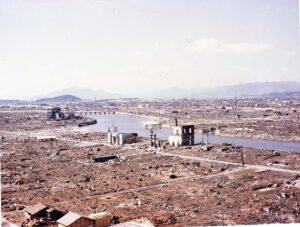Battle for the Arab airwaves in Belgium
A new commercial radio station in Belgium has stoked a war of words… in Arabic.
The launch of a new commercial Franco-Arab radio station to cater for Belgium's large Arabic-speaking community – from Antwerp to Namur – has been greeted with a mix of excitement on the part of listeners and animosity from its rivals battling to retain their share of the airwaves.
The Radio Contact group, one of Belgium's largest commercial broadcasters, soft launched Contact Inter in September in order to tap into a huge, largely unexploited niche market – the station generously reckons there are 250,000 potential listeners – where other major networks do not yet have a foothold.
Nicholas Roisin, media spokesman for Radio Contact, says that his network had been hearing calls for such a station through the grapevine, or Téléphone Arabe as it is called in French.
“Then a group of people from the community came to us with a proposal for a modern, non-political and liberal radio station,” he said.
The new channel's bosses envision Contact Inter primarily as a broad-based entertainment and music provider, with any political or religious content taking a backseat. “We want to avoid pigeon-holing people,” insists Roisin. “We want to recognise multiculturalism and to promote inter-community understanding.”
Roisin says they will endeavour to make the station appealing not only to the Arab community but also to a broader audience.
But it is early days yet. Inter's content currently comes via satellite link directly from its partner Medi-1, a leading Moroccan broadcaster. Inter is busily assembling its local team and hopes, by November, to air its own music and talk shows, as well as domestic and community news. Medi-1 will supply the international and Middle Eastern content.
Most of Inter's programming will be in both Arabic and French, with bilingual DJs co-hosting the shows. At least 30% of Inter's music content will be in Arabic, ranging from pop and Rai, to the more traditional classic crooners. The other 70% will be Western mainstream music.
Not everyone is happy with Inter's plans. The fledgling station is already embroiled in a heated dispute and legal wrangles with a long-established rival, Radio Al Manar.
“Contact Inter has no licence to transmit on that frequency,” Al Manar's president, Bouda Ahmed, complains. “They are also transmitting a foreign station in Belgium, which is illegal.”
Ahmed fishes out a court citation from the heaps of papers strewn across his desk in which his station is demanding that Inter be taken off the air and the payment of €30,000 of damages for every day it broadcasts.
Ahmed suggests that powerful political hands, who wish to exploit Inter for their own ends and weaken his station's sway, are at play. He alleges that a prominent member of the Partie Réformateur Libéral who is involved in the station wants to use Inter to influence the voting practices of the community.
The alleged puppeteer in question, parliamentarian Mostafa Ouzekhti, is furious at Ahmed's allegations. “Manar is creating a crisis out of nothing because they feel threatened by (Inter's) high technical resources and professionalism,” the veteran politician, who is a shareholder in and board chairman of Inter, counters.
“Inter will be politically neutral. We, as shareholders, are not permitted to speak on the station or use it as a vessel for party politics. That is clearly stated in the station's charter.”
Ouzekhti contrasts this with Al Manar, where, he says, its president has used it as a platform to run his unsuccessful election campaigns. He argues that Manar's legal case also rings hollow.
“They are in the same legal position as us: they also have no licence,” he points out. “How can they then take us to court? That's idiotic!”
At issue is a 20-year-old turf war between the Francophone and Flemish communities over how to carve up the airwaves over Brussels, which also cover large tracts of Flanders. Ouzekhti says that the airwaves are replete with some 30-40 unlicensed commercial stations.
“It's a grey legal area. There is no law prohibiting or permitting transmission without a licence,” he explains.
Grey legalities aside, many segments of the Arab community welcome some new broadcasting blood. “We need good programming to make our voices better heard and reflect well on the community,” said Sarie Abdel-Salam, who heads the Centrum Voor Marokkaans Arbeiders.
There are no listener figures available yet, but Abdel-Salam says the quality gap has already resulted in a mass exodus of listeners to the new station. Although Inter's professed neutrality means that it will not actively defend community interests, he says he prefers this to the intrigues of Al Manar.
“Al Manar is paralysed by infighting and poor programming,” he says. “It does not respect individuals or the community. You always hear the same voices and arguments.”
– Contact Inter is available on 94.5 FM and Al Manar on 106.8 FM
_________
This article appeared in the 17 October 2002 issue of The Bulletin



Pingback: Breaking the culture barrier in Brussels - The Chronikler